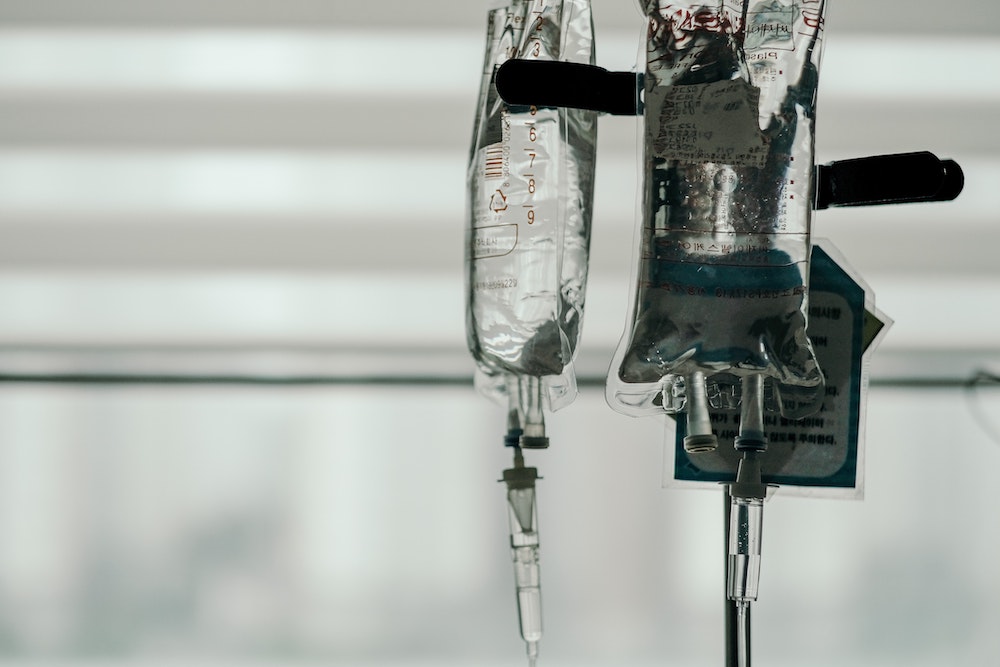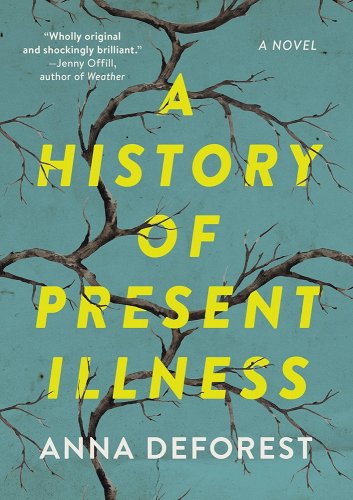I used to think I was afraid of death because it is the only problem in life you can’t fix with a good retelling. My own death, I mean—the potential dying of my loved ones did not grip me so tightly; such deaths seemed remote in a way that the sudden failing of my own heart, lungs, or other vital organs did not. I was not a generous phobic. The first time I went to the hospital with early nervous collapse, I had been searching for discount high-end sheets at an outlet store in Union Square. Out of the blue, I was electrocuted by nothing: a shock from behind my eyes shot down my arms and legs, leaving me frozen, with ringing ears and broken eyes that saw from somewhere far away and dark, like the bottom of a hole in the ground. What is this? I thought. Then it happened again, and then I couldn’t breathe, so I went to the hospital.
What did I hope to find there? Relief, which at first means diagnosis and treatment, a cure, though in time we learn, the chronically ill, that our best hope is palliation. A visibly annoyed doctor gave me an Ativan and told me to go home. I was confused—wasn’t the hospital the ideal place for someone always about to die? In the Hospital was the working title of my first novel, now called A History of Present Illness, in homage to how much the protagonist wanted to be there, admitted and considered, cared for and cured. But the hospital is not that kind of place. I know that now, and I am there all the time, at the bedside as a doctor showing up to palliate the worried unwell.
The following seven books stretch across genres to capture the confusion and powerlessness of being subject to a body, subject to a hospital, subject to life and death.
The Two Kinds of Decay by Sarah Manguso
The effect of illness on the self is central to this poetic memoir of living with a protracted nerve disease related to Guillain-Barré syndrome. If being in the hospital is always a profound surrendering of volition, the trap in this case is emphasized by literal paralysis. There are no triumphs here, as the dissolution of Manguso’s mind and body advance in an unforgiving medical atmosphere, all rendered in precise and cutting prose. The Two Kinds of Decay is a startling account of which injuries can heal, and which cannot, and how long it takes to find out what matters.
Dear Friend, from My Life I Write to You in Your Life by Yiyun Li
Li’s is a personal history of language, literary friendship, and incidental hospitalization, as well as a chronicle of self-dissection. The complicated sequelae of chronic despair suffuse this brief and generous memoir, which includes little in the way of solace. Once an aspiring research scientist, Li describes her turn to writing as a compulsion toward circling the unsayable. Her chapters are letters from deep within the isolation of personhood in all its limitations, from a thinker so obsessed with self-effacement, it is a gift that she was driven to write to us at all.
My Happy Life by Lydia Millet
A place like a hospital provides a frame for the recollections of a vagrant woman, unwanted since birth, found abandoned as an infant in a shoebox. The woman recounts with a tone like wonder her bare life of trauma and isolation. When finally she is locked away and forgotten, left to eat toothpaste and plaster dust until the world dissolves around her, she leaves us at least half-enlightened (and fully grateful for life) on the right side of the walls. Grim and surreal, this singular novel is a haunting meditation on optimism in a violent and senseless world.
The Hospital by Ahmed Bouanani
The Hospital depicts the instant unwinding that comes with protracted illness and confinement. In a delirious dream of time and memory, the narrator, unclearly tubercular, finds himself stuck in a dirty hospital somewhere in the Magreb, his fellow patients all wild men who cling to stories of sex and violence to imitate the vigor of the lives they once led. Set apart from the rhythms of regular life, these men face the degradation and debility of the ailing body—true for us all, but starkly revealed by the enforced humility of medicalization.
Little Pharma by Laura Kolbe
A debut poetry collection from a practicing physician and medical ethicist, Little Pharma is the product of a clinical mind finding art in the bulky lexicon of hospital medicine. Here we find compassion for a vanishing cadaver, and reverence for the farness between self and other, self and lover, self and self. Kolbe’s speaker comes to seem like someone on whom nothing is lost: the smell of a coat, the shape of teeth marks, toad-sized human hearts. Kolbe takes great pains to make the hospital new, even to those of us who live there.
Obit by Victoria Chang
A read for remembering that we will all be made to give up what we have—all of it. This collection recounts the loss of the poet’s parents, fast and slow: her father’s stroke, which left him aphasic, her mother’s death from pulmonary fibrosis. Writing in the form of dozens of obituaries, Chang circles grief meticulously with language, refusing to yield to the sense-destroying force of loss. Despair is not where this book ends but where it starts, levitating from there toward something beyond hope, something more like communion.
A Personal Matter by Kenzaburo Oe
A cram-school teacher feels his dreams foreclosing as his wife goes into labor with their first child. His tepid fears of responsibility are blown away by what comes next: the infant is born deformed, likely brain-damaged, with few future prospects beyond life as “a vegetable person.” The new father spends the bulk of the book avoiding the hospital in hungover regression, waiting for a phone call announcing his young son’s death. Oe crafts a complex moral landscape to elevate the question: When we give up youthful dreams of permission and escape, what is left?

